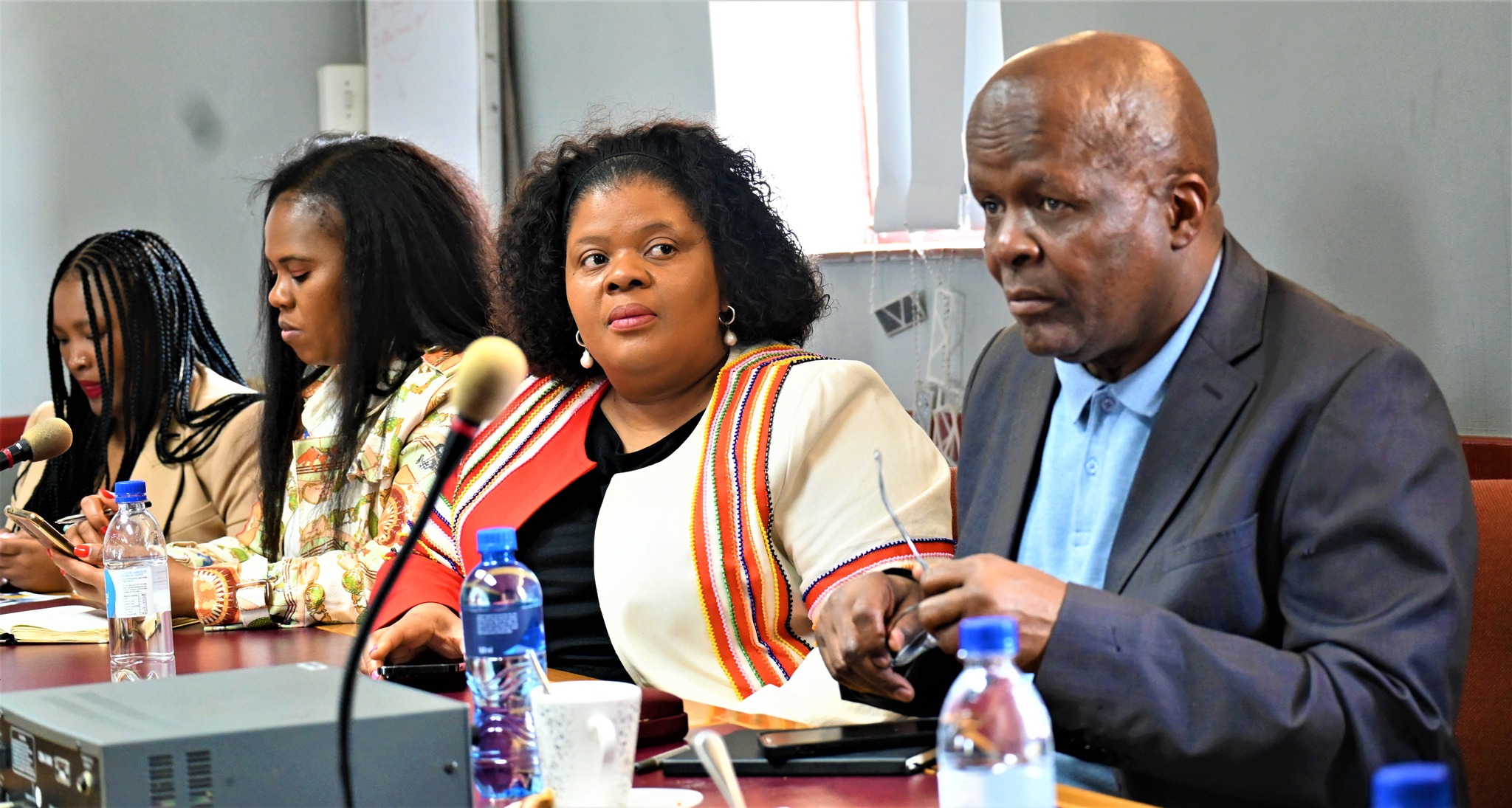COMMUNICATIONS AND DIGITAL TECHNOLOGIES MINISTER CALLS FOR RECONFIGURATION OF COUNTRYS GRASSROOTS EDUCATION

Minister of Communications and Digital Technologies, Mondli Gungubele, called on both the basic education and higher education systems to reconfigure their respective curriculums in order to adopt a more digital and technologically-infused teaching and learning methodology.
Speaking during his first ever visit to WSU’s STEM Centre at the Buffalo City Campus’ Potsdam Site recently, an excited Gungubele immediately tasked his department’s officials with initiating steps to engage with the basic education department regarding the adoption of digitally and technology-infused teaching methodologies so as to inculcate such practices from the “cradle to the grave”.
“Having seen this (STEM Centre) infrastructure lets me know that a lot of amazing and skilled people can be produced from here beyond just merely fixing mobile phones – others can go on to design and conceptualize new phones. This centre is but an entry point to greater things possible and that’s the magic of economics,” said Gungubele.
Reinforcing the importance of the centre in imparting mobile phone repairs and data science skills to local unemployed youth, the minister characterized the centre as an “entry point“ to a much greater level of participation in the mainstream economy.
Gungubele was at pains to further express the socioeconomic benefit and significance of the intervention, which will see some of the invasive effects of colonialism and Apartheid that saw the marginalization of the black majority in participating in the mainstream economy being reversed.
“The concept of history of economic thought when superimposed on our historical context shows us how the government of those days suppressed the masses from participating in manufacturing – a critical aspect of any thriving economy. If you want to commit genocide in any nation, you close the space of those whom you suppress to participate in manufacturing,“ he said.
In her welcoming remarks, Acting Deputy Vice-Chancellor for Academic Affairs and Research, Prof Mashudu Dhavani-Maselesele, said through the WSU-based eSkills CoLab, through which the establishment of the centre was championed, the university would, in 2023, concentrate its efforts on three main areas – basic digital literacy, mobile phone repairs and data sciences.
Prof Maselesele said: ”Through these three main areas, we’re looking training our local youth and communities on the critical fourth industrial revolution project which underpins most if not all that society bases its activities on.”
She also heaped praise upon one of the university’s most critical partners, the National Electronic Media Institute of SA (NEMISA), which funds the EC e-Skills CoLab and was central in establishing the partnerships necessary for the realization of the STEM Centre.
By Thando Cezula
